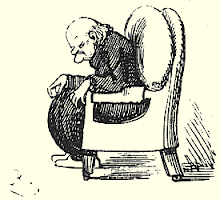
In this crime-scene photograph, (A. O'Connor - AnemoneProjectors) you can see Detective Sergeant Head's body lying in the street behind the dark-colored vehicle.
Roberts, Duddy, and Whitney were all arrested and found guilty of the murders, and were sentenced to life imprisonment by Mr. Justice Glyn Jones, who is often quoted as referring to this murders as "the most heinous crime to have been committed in this country for a generation or more." People called angrily for the return of the rope, which did not return. At the officers' funerals, thousands of officers and civilians from all over the United Kingdom attended, as did Prime Minister Harold Wilson.
Duddy died in prison of natural causes in 1981, which is just fine with me, because that's what a life sentence means.
Shockingly, Jack Whitney was released in 1991, after only serving 25 years in prison for the murders. He did, however, have his head beaten in with a hammer by his heroin-addicted flatmate during an argument, so that took care of him, and gives a hair of credence to my mother's philosophy "everything happens for a reason."
There was much talk in February of 2009 that Roberts would most likely be released from prison. He has been in prison for 43 years, and is now 73 years old and refers to himself as "an old-age pensioner." He may very well be an old age pensioner, however, he is still something most other old-age pensioners aren't, a convicted triple-killer. While the passing of time makes some things better, like cheddar and wine, it doesn't do much to improve the reputations and histories of those involved in appalling acts like the one in which Roberts participated, and began, on August 12, 1966.
Roberts himself says this: "I can understand why the families of the three policemen could never forgive me and wouldn't want me released. But I feel I've served my time."
My question is this: how can you feel you've "served your time" of a life sentence if you're still alive? Obviously, you haven't, Mr. Roberts. You have served time, and you've served a lot of time, but is it enough?
When I hear people talk about crimes that occured a long time ago, I call them "black-and-white crimes" because that's how most of them were recorded for posterity, they often voice the opinion that, once a certain amount of time has gone by, the punishment somehow no longer fits the crime. Usually this opinion is expressed by sympathizers of the convicted, though not always, and usually these sentiments are posed when the killer is wizened, elderly, gray and now appears avuncular, or even grandfatherly-- in stark contrast to, say, their mugshots in which they appear crazed, young, powerful, angry-- and very, very dangerous.
"Who could he harm now?" people ask of convicted murderers like Harry Roberts, who committed their crimes in long ago, sepia days of yore. The answer, though, isn't really relevant. The gravity and the atrocity of the butchering of three unarmed men in the middle of a sunny afternoon demonstrated that the socioipathic nature of these three men was sufficient to warrant them being removed from society forever-- and that is what should have been done.
I think that people who utilize the "enough is enough" argument when referring to elderly people who have done the evil art of murder in their youth have a lot of nerve advocating for the release of people I don't think they'd want buying the house next door to their own families. The people who wouldn't pass background checks to work in their shops. The people whom you can't ever really trust, ever again.
The Lucifers in our midst.















I'm with you here: life in prison should mean life. So you're in your 70s now? What about the men you killed who weren't that lucky? Sorry, kid, but them's the breaks -- you're staying there.
ReplyDeleteI agree, life should mean life. I hear so many stories of people being let out when they've got a 'life' sentence it makes me sick. Mind you I also don't like that the tax payers have to pay for these people to be kept in prison (and have more spend on their meals than children's school dinners!). I think they should suffer though, so that rules out just killing them. It's a bit of dilemma really.
ReplyDeleteI also agree. A little girl named Kayla Klaudusz was only 3 years old in 1991 when she disappeared and was found dead 3 weeks later. When she disappeared her extended family rallied round, had tshirts made up and even rented out an office if i remember correctly, to keep up the search! Just to see how the family tried so hard to find her broke Toronto's heart every day. They found the killer and he got life imprisonment and I hope he dies there. I will never forget that little girl and I truly hope the family will rally round again if the killer applies for probation.
ReplyDeleteTrue dat. We don't remove these people from society only to protect the innocent. We also remove these people as punishment, and to send a message that, "if you kill people, this is where you will go."
ReplyDeleteIf the person fails to serve their life sentence, then 1)they haven't been properly punished, and 2) we're sending a bad message to would-be killers: That even if you kill people and get a life sentence, you very well may get out in a few decades.
Not good.
Should have brought the ropes back...
I think we should kill 'em all. Then there is no question. A life for a life. Period.
ReplyDeleteI'm not talking about accidental death, manslaughter and the like, I am talking about cold blooded murder.
Kill the monsters!
Wow that was a long post. Very thought-provoking :) I wasn't trying to trick you the other day, just so you know. I just thought you might enjoy the post that's all :P
ReplyDeleteAnd WHOA!! @adrienzgirl right on top of me.
Out of interest, I'm curious: when you refer to "Lucifers", do you believe some people are literally evil, and born that way? Or do you mean it more metaphorically. I'm just interested.
ReplyDeleteJay--
ReplyDeleteWell, I don't know quite what I mean, frankly the phrase "The Lucifers in our midst" just popped into my head and I thought, "Oooh! That's very dark and poetic and would almost make a good title for a book about released murderers.
But I'm glad you asked the question, because it made me think...
I believe we all have the propensity for evil, but that, through our impulse control and our good breeding and loving parents and respect for the social order, the vast majority of us don't act on these impulses. People like Harry Roberts, however, who are only out for their own survival and consistently seek to wrong and harm other people, however, do act on these impulses, and while they long long ago perhaps had the chance at being decent fellows, they "fell from grace" as it were, and succumbed to their dastardly impulses, which is where I got the Lucifer parallel.